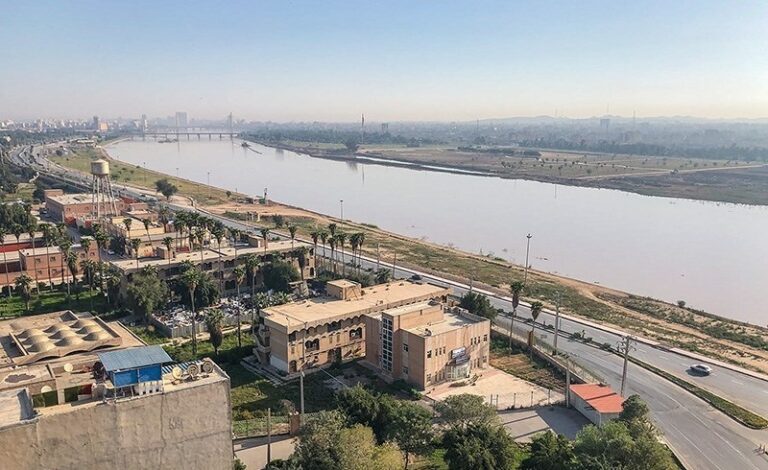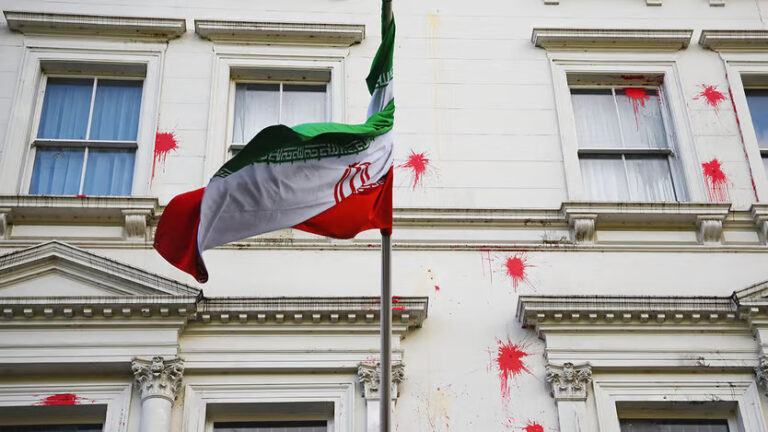
Experiments conducted at the Jabr Ibn Jayan Multipurpose Research Laboratory were aimed at producing uranium metal from spent nuclear fuel to serve as radiation shielding, Iranian Atomic Energy Organization head Ali Akbar Salehi said, adding without providing details that his country possessed a large quantity of depleted uranium. The U.N. nuclear watchdog’s statement that the facility had carried out pyroprocessing work was a “misinterpretation,” he said.
“The experiments have no relation to pyroprocessing,” state media quoted Salehi as saying. “We believe the agency used this false report about a process that has not yet taken place, with the purpose of influencing public opinion.”
The U.N. agency’s international standing could be undermined by such “mistakes,” the official added. The United States and several European powers suspect that Iran’s nuclear program is geared toward weapons development; Tehran has consistently denied the assertion.
The Middle Eastern state informed the agency in January that it had pursued pyroprocessing efforts. When the Vienna-based organization sought details, Tehran reversed its declaration and indicated it had never carried out such work. During a visit to the Tehran laboratory in May, U.N. inspectors learned “that the electrochemical cell had been removed” from the facility, the IAEA safeguards report states.
The Iranian official said his country had not transferred any equipment from the site and the agency’s assertion was “not correct,” AP reported. Iran would provide proof to refute the assertion, Salehi said, failing to state when it would offer the evidence (Nasser Karimi, Associated Press/Google News, June 3).
The Obama administration yesterday said the U.N. Security Council was likely to adopt a fourth sanctions resolution against Iran next week, despite speculation that the measure could be held up over Israel’s violent seizure of a Turkish-registered ship transferring aid to the Gaza Strip, Agence France-Presse reported.
“We’ve seen sanctions introduced in the U.N. Security Council that we believe will be voted on next week and approved by the U.N. Security Council,” White House spokesman Robert Gibbs said.
Washington was working to win adoption of the resolution without support from Brazil or Turkey, two nonpermanent members of the body, high-level U.S. officials said last week. Security Council actions require support from at least nine of the group’s 15 member nations, and no veto by any of its permanent members: China, France, Russia, the United Kingdom and the United States (Agence France-Presse I/Google News, June 3).
China yesterday said the United Nations should avoid pursuing any measures that would harm the Gulf nation’s populace, China Daily reported.
“The U.N. action should help resolve the Iranian nuclear issue through dialogue and negotiation,” Chinese Foreign Ministry spokeswoman Jiang Yu said.
“The vote on the draft proposal does not mean the door to diplomatic efforts is closed,” Jiang said, noting that Beijing still stands by an international strategy of using both pressure and dialogue to seek alterations to Tehran’s nuclear policies (Ma Liyao, China Daily, June 4).
Iranian President Mahmoud Ahmadinejad today said his nation would assert itself, even if it becomes subject to further U.N. penalties, AFP reported.
“We are standing in the face of enemies. To defend the rights of the nation, we will pull out any resolutions from the mouth” of the nation’s antagonists, he said (Agence France-Presse II/Google News, June 4).
Meanwhile, former IAEA chief Mohamed ElBaradei last week said he was “surprised” that Washington and its allies continued their pursuit of new Iran sanctions after the Middle Eastern nation reached a uranium exchange deal with Brazil and Turkey.
The deal calls for the Gulf nation to store 1,200 kilograms of its low-enriched uranium in Turkey for one year; other countries would be expected within that period to provide nuclear material refined for use at a Tehran medical research reactor in exchange for the Iran-origin uranium.
The arrangement appeared similar to another proposal, formulated in October by the International Atomic Energy Agency, that was intended to defer the Middle Eastern state’s ability to fuel a nuclear weapon long enough to more fully address U.S. and European concerns about its potential nuclear bomb-making capability. Tehran ultimately rejected the IAEA proposal.
“I was frankly not surprised that the offer came through, I was surprised at the reaction that some countries would continue to say that they want to apply sanctions, because, the Iranian issue, if you remove over half of the material that Iran has to Turkey, that is clearly a confidence-building measure regarding concerns about Iran’s future intentions,” ElBaradei told the Jornal do Brazil newspaper.
“The material that will remain in Iran is under IAEA safeguards and seals. There is absolutely no imminent threat that Iran is going to develop the bomb tomorrow from the material that they have in Iran,” he added.
ElBaradei also expressed doubt that Israel would attempt military action against Iranian nuclear facilities.
“I can’t read their intention but I hope they don’t because I think it would be madness to attack Iran right now. As I have said before and continue to say now, it could turn the Middle East into a ball of fire, it would not resolve the Iranian issue but it would be an incentive and invitation for Iran — even if they are not working or developing the ambition to build a weapon — to develop a nuclear weapon. It could delay an Iranian nuclear program for a year or two but definitely they would come back with a clear mission of developing a nuclear weapon,” he said (Jornal do Brazil/Campaign Against Sanctions and Military Intervention in Iran, June 3).
Russia yesterday called for further discussion of the uranium exchange plan, the United News of India reported.
“We count on the fact that the countries involved in the project will have a chance in the foreseeable future to discuss all necessary practical aspects linked to the implementation of the fuel swap scheme with the Iranian side,” Russian Foreign Ministry spokesperson Andrei Nesterenko said.
“In our opinion it is good to hold such a meeting under the IAEA aegis,” he said (United News of India/New Kerala, June 3).
Russian Foreign Minister Sergei Lavrov and U.S. Secretary of State Hillary Clinton discussed the three-nation agreement and other elements of the Iranian nuclear dispute by telephone, ITAR-Tass reported today.
“They exchanged views on the situation around the Iranian nuclear program in the context of the work in the U.N. Security Council on the draft resolution on Iran and prospects for the fulfillment of the fuel swap scheme for the Tehran research reactor,” the Russian Foreign Ministry said today (ITAR-Tass, June 4).
Russian President Dmitry Medvedev was set to travel today to Germany, where he is expected to address the nuclear standoff and other nuclear weapons issues in talks with German Chancellor Angela Merkel, RIA Novosti reported (RIA Novosti, June 4).
Source: Global Security Newswire











+ There are no comments
Add yours